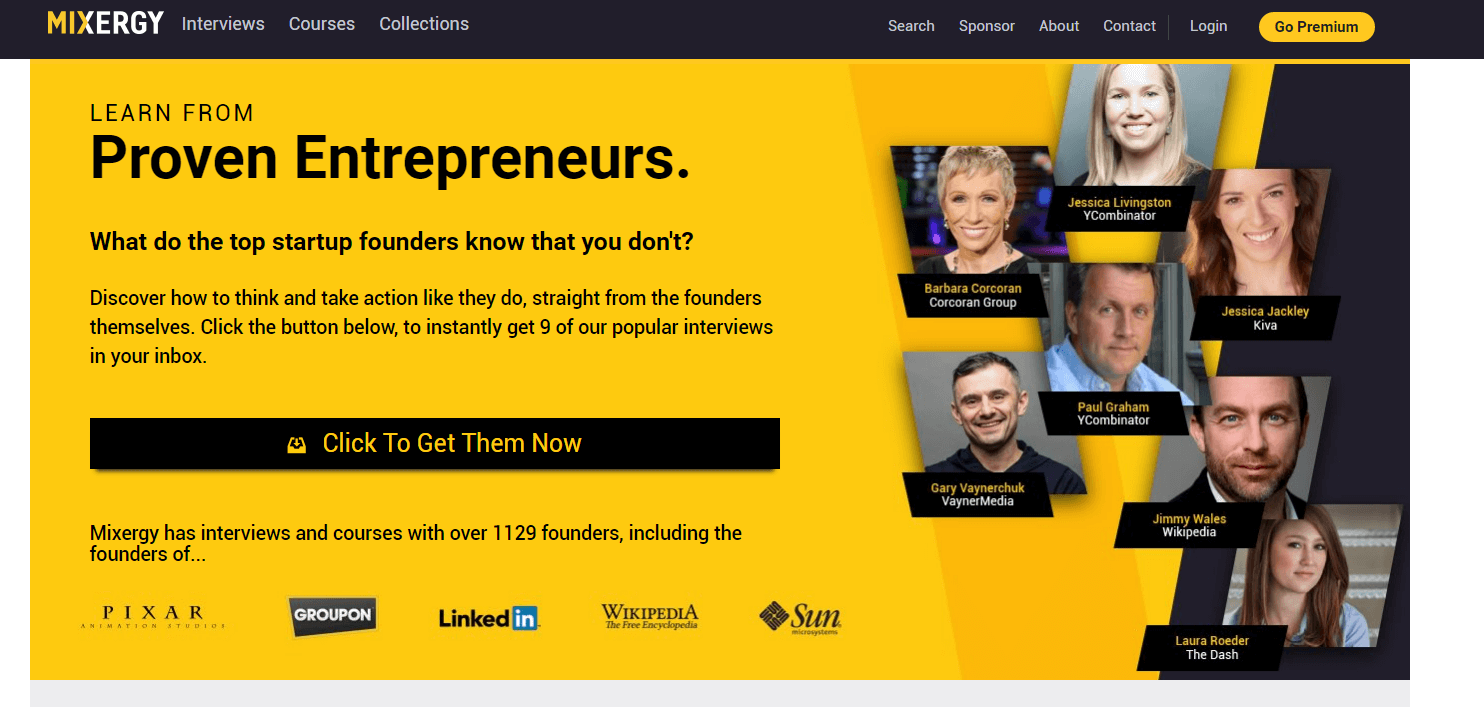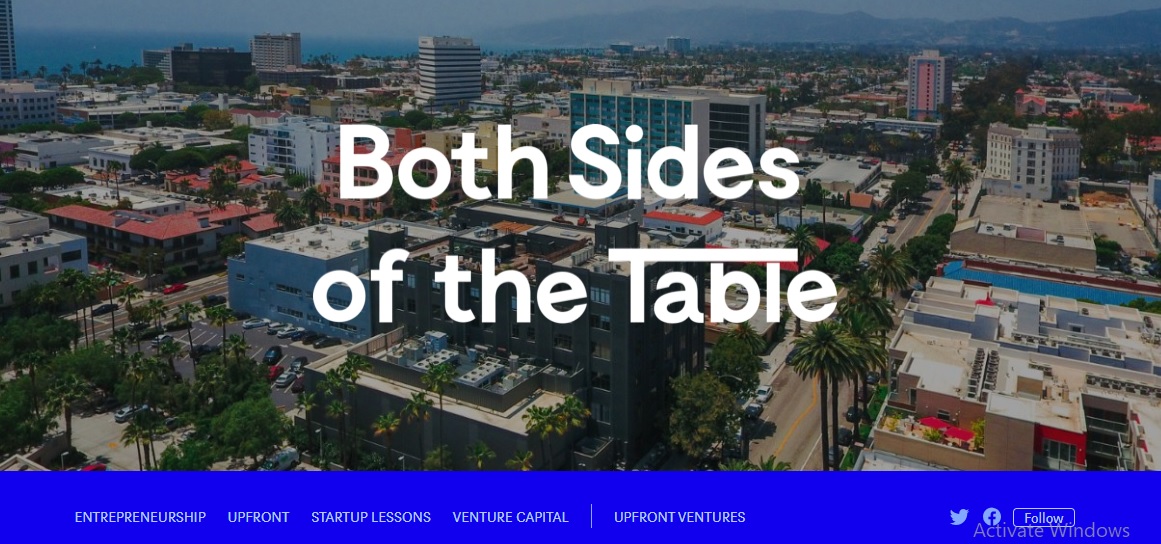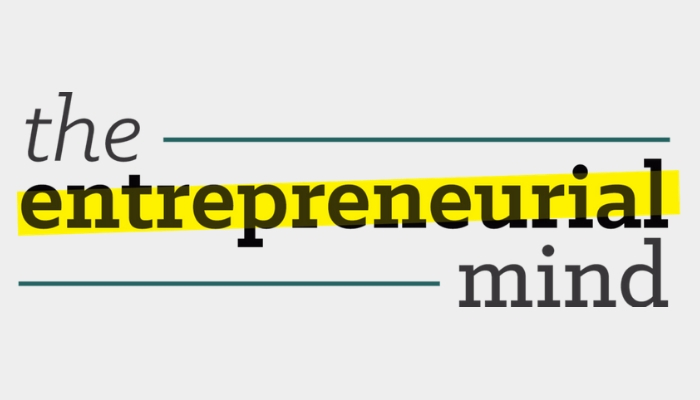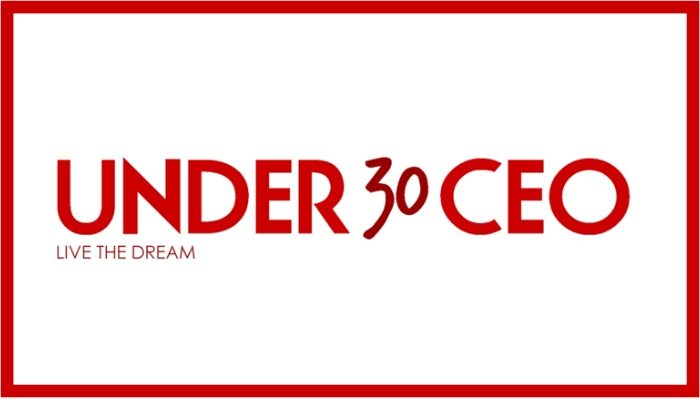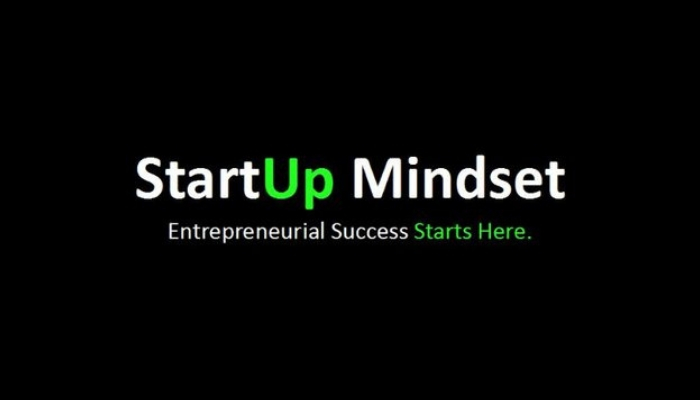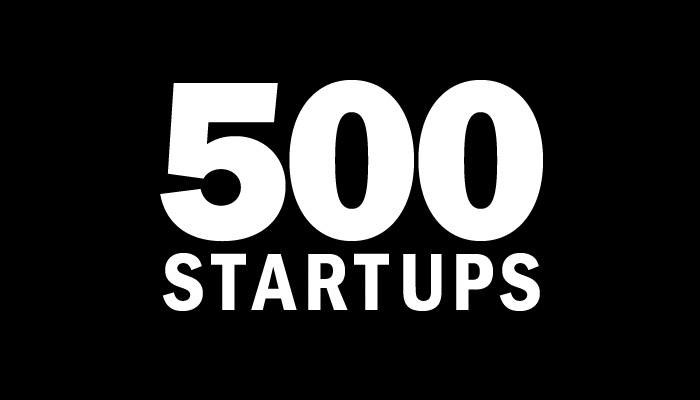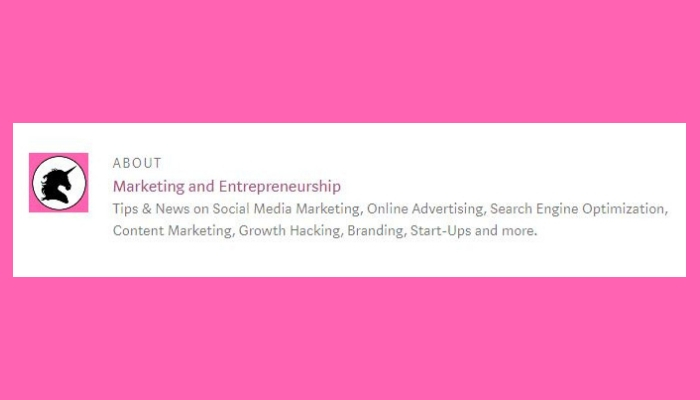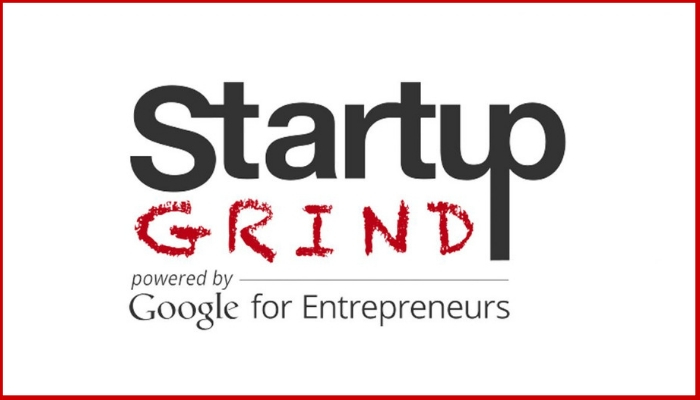Launching a startup is one of the boldest initiatives one can take in life. It requires dedication, consistency and a whole lot of innovation. You must spend hours to build your products off the ground and turn them into sellable ones.
According to a report, entrepreneurs spend over 80 hours per week building their startups. They are always busy and rarely have time to read about the latest happenings, tech trends, and advice of startup trainers that can reduce their workload. Fortunately, the webosphere is packed with entrepreneurs, investors, and business gurus who are always ready to share their knowledge. The only problem is that it is really difficult to find ones who are worth following.
That’s where this list of the best blogs for entrepreneurs comes to help. The list includes some of the top business blogs about startups, entrepreneurship, marketing, product, and investments.
1. Seth’s Blog
Who doesn’t know Seth Godin? Seth is one of the best marketers of the current age. He has served as the vice president of marketing at Yahoo and also served as a consultant for multiple Fortune 500 companies. He is also the author of multiple books on innovation and marketing.
His blog is a wisdom-mine. You will always learn something new when you visit his blog.
Whether you are planning to market your startup or working as a marketer, it will help you in both cases.
Topic: Digital marketing as a whole – Permission marketing, performance marketing, organic marketing.
Value: Great for small businessmen and startup founders.
2. Gary Vaynerchuk’s Blog
Next in our list is Gary Vaynerchuk. If you have been into digital marketing, you must have heard about Gary. He is a pioneer of internet marketing and has built a $60million business just by marketing over the internet. Pre-internet era, Gary’s father had a wine business that was doing just fine, but not witnessed any major growth. Gary brought it online and started influencer marketing to sell more bottles of wine. From then onwards, there was no looking back. Today, he is one of the most-watched marketers on Youtube. He has authored many books and also regularly blogs and produces visual content on his youtube channel.
Topic: Motivation for startups, business plan, startup mistakes.
Value: Helps young entrepreneurs learn about the things they should avoid in business.
3. Mixergy
Andrew Warner is the man behind Mixergy. People know Andrew for his epic success in the startup industry when he recorded over $30million in annual sales.
He founded his blog so other entrepreneurs can learn and implement the same techniques that he has used. Mixergy regularly carries the best content and publishes interviews with top entrepreneurs and businessmen.
Recently, they have started a courses section on the website that tells the beginner entrepreneurs about how to build a successful business from scratch making it one of the best entrepreneurship blogs in 2019
Topic: Product development, Startup marketing.
Value: Helps during startup development and growth stages.
4. Women on Business
Women on Business is a key resource for women entrepreneurs who want to learn A to Z about the science of startups. It has everything that a startup founder would want to learn from creating a feasible business plan to learning about startup insurance, accounting, and even hiring process – it educates on almost everything related.
The blog is active since 2007 and since then it has become a major resource for the female entrepreneurs around the world.
Topic: Startup, women empowerment, marketing, entrepreneurship.
Value: A dedicated resource for women entrepreneurs.
5. Small Business Trends
Small business trends started in 2003 as a business trend listing website. Many have benefited from it because of the business opportunities it offers. Today, it has become a major trendsetter in the startup industry itself. It has now a following of over six million readers and counting. This entrepreneurship blog covers almost all major topics from marketing, development, sales, and logistics etc.
Topic: Startup marketing, product development, sales and logistics.
Value: Learn the skill-sets you need to grow your business. Read the interviews with successful businessmen.
6. Cloudways Blog
Cloudways blog provides valuable resources on startup development, marketing, and ecommerce. Our entrepreneurship blog contains in-depth and detailed posts on a wide range of topics.
That is the edge that this blog enjoys. This blog is for budding startup founders who are just starting out and even to those that have already sustained in the market but are trying to expand their businesses. It has got something for everyone.
Topic: Startup launch, product development, Startup marketing, growth hacking, and more.
Value: Provides tips, tricks for entrepreneurs and marketers and also inspirational startup stories for motivation.
Top Startup Events, Conferences and Meetups You Must Attend
7. Brian Solis’ Blog
Brian Solis is an award-winning author, blogger, and keynote speaker. He has studied the patterns of success and the impact of new technologies on the business world. In fact, he has created his wealth by studying and applying the same patterns to his life and then writing about them. Brian is a keynote speaker at many major tech events. His blog is a great resource for advice on customer experience, leadership, and management.
Topic: Industry insights, latest trends in tech.
Value: Learn about the latest industry trends to align your startup’s focus.
8. Both Sides of the Table
Both Sides of the Table is one resource that guides new startup founders about fundraising. The startup magazine is active for the last 10 years and provides actionable advice on the startup development process. Whether you are a startup founder or an employee, it can help you in both cases.
It is the brainchild of Mark Suster who offers excellent advice for startup owners and established businessmen, needless to mention one of the best entrepreneur blogs out there.
Topic: Fundraising, Startup product development, investments, startup ideas.
Value: Helps you learn about how to properly pitch your startup to the investors.
9. All Business
All Business is your collection of business and entrepreneurship blogs having expertise in areas ranging from finance to marketing, to sales, and accounting. The diversity in business areas gives it an edge among entrepreneurs and startup founders. It is not purely a business blog but has become one thanks to the insightful publications it offers. Whether you are looking to find information about your business insurance or applying for a business loan, All Business has something for you.
Topic: Startup marketing, product development, business and investments.
Value: Not limited to startups. Great resource to learn about the business before indulging in one.
10. Copy Blogger
If you need just one resource for improving your copywriting skills, then Copy Blogger is the resource to follow. Its followers call it the Bible of content marketing. Brian Clark founded Copy Blogger in 2006 and since then it has grown by leaps and bounds. It now earns an 8 figure yearly revenue through courses, ebooks, subscriptions, and premium digital products.
Topic: Copywriting, content marketing, and blogging.
Value: Learn how to make your product sell through the power of words.
11. The Entrepreneurial Mind
Dr. Jeff Cornwall is the man behind The Entrepreneurial Mind, an interactive e-learning platform that focuses on providing in-depth business insights to small business owners. His debates encompass almost everything related to finance and microeconomics. For example, who is the consumer in online education, or why online education courses are all priced at the same price? Jeff also sheds light on personal finance and building a transformational business model.
All in all, it is one business resource to find answers and learn about topics such as growing a business, working with partners, and raising capital.
Topic: Business partnerships, investment opportunities, and finance.
Value: Learn how digital economies are flourishing and creating a name for themselves.
12. Startups.co
Startups.co blog focuses on small startup and business problems. It features articles on entrepreneurship, startup mistakes and failures, and interviews of successful entrepreneurs and startup founders. The reason we recommend you to read Startups.co is that it is a product of Clarity.fm, a mentorship platform. So, those who don’t have the budget to subscribe to Clarity.fm, can also read some of the topics those mentors discuss.
Topic: Small startup problems, startup mistakes, startup failures.
Value: Helps entrepreneurs learn the dos and don’ts of entrepreneurship.
13. Under 30 CEO
Under 30 CEO is not just an entrepreneurial blog focusing on startups and entrepreneurship, it has something for everyone trying to beat unproductivity. The purpose if this blog is to feature successful people who are still under 30. With that said, the blog focuses on highlighting their core strengths, so that others can follow and do the same. Sometimes it focuses on freelancers, sometimes, startup owners, and sometimes investors. The reason why it is helpful for entrepreneurs is that they can learn a lot about the types of business people usually do and realign their own business strategy.
Topic: Productivity, Best business practices, Startup growth hacking.
Value: Learn from startup founders who are under 30 but offer some crucial advice for success.
14. StartUp Mindset
StartUp Mindset is a blog for all startup founders who are just starting their businesses. It features content on startup topics such as business growth, leadership, money, finance, and technology. The blog has been publishing startup content regularly for last eight years and is a prime resource for most entrepreneurs.
Topic: Growth, leadership, money patterns, and tech trends.
Value: Perfect for those who are just starting their business.
15. 500 Startups
500 Startups is a venture fund and startup accelerator based out of China. Dave McClure and Christine Tsai are the people behind this initiative. So far it has invested in more than 1600 companies around 60 countries. The company also runs a regular blog on startup management and funding. It has a separate team for the blog that provides thorough and in-depth articles on growth hacking, marketing, venture based funding, and product development.
Topic: Startup marketing, growth hacking, fundraising, and product development.
Value: For those who want to learn kickass startup marketing.
16. Smart Hustle
Smart Hustle is a print and online magazine focusing on startup owners’ interviews, blogs, and tips. They publish it on a quarterly basis as a print and digital magazine.
The reason it is called ‘smart hustle’ is that it features the journey of hustle for every entrepreneur. It also features a smart hustle conference every year featuring top business executives.
Topic: Startup interviews, startup marketing.
Value: Learn about part-time entrepreneurs and how they juggle their jobs with their side hustle.
17. Marketing and Entrepreneurship
Marketing and Entrepreneurship blog is founded by Larry Kim, the person behind WordStream and MobileMonkey. Basically, this blog is a compilation of blogs on entrepreneurship taken from other different blogs. The purpose of this curated blog is to bring all resources to a single place so entrepreneurs don’t have to search around the web to get the information that they want.
Topic: Startup marketing, product development, business growth.
Value: If you have time to read only one resource, go with this one.
18. The Startup
Medium is one channel that offers content on multiple resources. Most publications simply repurpose content and post it on Medium while others create content specifically for the website. The answer is simple, it is now one of the top 500 websites and people are really reading content on it. That’s why SWLH (The Startup) creates posts specifically on Medium. It posts regular content answering burning questions of startup founders. Whether you want to know about business trends, Blockchain, fundraising, marketing, or something else, the Startup (medium based blog) has it for you.
It has over 350,000 subscribers as of now and self-claims to be the ‘biggest’ startup publication on Medium.
Topic: Startup marketing, finance, Blockchain, fundraising.
Value: Startup focused blog with over 350,000 subscribers on medium.
19. Startup Digest
Startup Digest offers a curated list of articles on all things startup. Developed as part of the experiment to create curated startup digest for Indian entrepreneurs, the blog focuses on interviews, tips, questions related to finance, accounting, and marketing.
Topic: Startup problems, questions about entrepreneurship, finance and accounts.
Value: Focuses on Indian startup entrepreneurs.
20. Startup Grind
Startup Grind is a project of Google that focuses on UGC articles on startup and entrepreneurship. It aims to inspire, educate, and connect entrepreneurs from around the world on a single platform. The Startup Grind blog features success stories and interviews of top startup founders in over 150 countries where Google for Entrepreneurs is working.
Topic: Startup marketing, fundraising, investor pitching, startup ideas.
Value: Real-life stories of top business executives and entrepreneurs.
Final Word
We don’t want to be harsh here, but reading these top entrepreneur blogs alone is not going to do anything. What you should do is to read these blogs and get the information that can help you succeed in business? Implement knowledge. We understand that not all of these blogs will help you out. Some might not even have the topics that you want to read about. But they all have some value to offer. Try to read them and then implement the lessons you have learned in your business.
Have a blog to add to this list of best blogs for entrepreneurs? Share your it in the comments section below.





